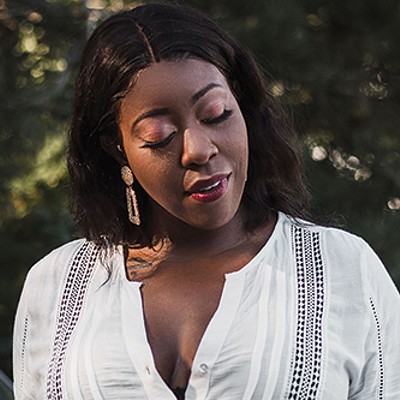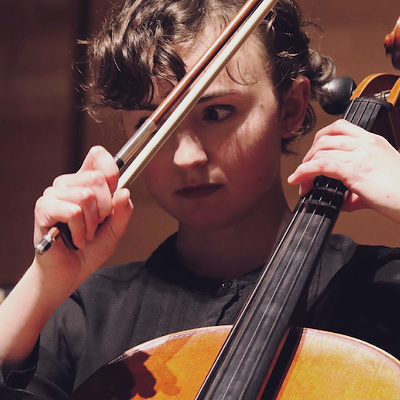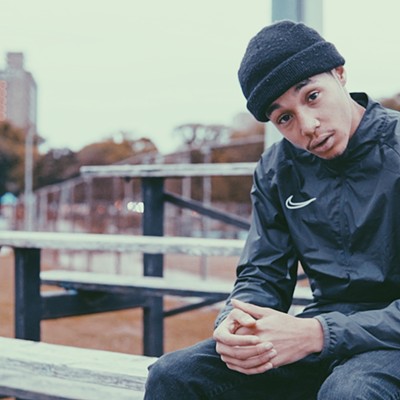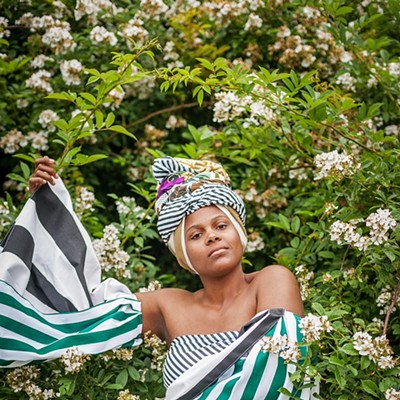This year CKDU turns 20. Two decades of FM broadcasting after a start on closed-circuit radio hooked up to Dalhousie University residences.
Like most campus/community stations across Canada, CKDU lasts because of volunteers. Each September, with the flood of new students on campus, people keep making the climb to the fourth floor of Dalhousie University’s SUB with dreams of having their own show and connecting with the people out there—it could be 10, it could be 1,000—who share their interests.Because let’s face it: they ain’t doing it for the money. There is none in campus radio.
Campus stations across the country are uniformly run-down physical spaces usually tucked away in student union buildings. The stations rely on student levies—CKDU gets $9 each year from every full-time student at Dal and free rent in the SUB—and, in many cases, experience precarious relationships with student unions. (Melissa Buote, CKDU’s program director, used to work at UPEI’s station, which no longer exists because the student union there yanked the funding in a dispute with the station.)
CKDU operates on an annual budget of less than $200,000. The bulk of that money goes to keeping digital equipment current and maintained. The station is not raking in advertising revenue like commercial FM stations and they don’t have government funding like the CBC. The station’s mandate, in its license from the Canadian Radio-television and Telecommunications Commission, is to run as a non-profit, diverse and accessible alternative—musically and politically—to commercial radio and the CBC.
Besides the student levy, the other big chunk of revenue comes from fundraising. CKDU holds an annual on-air funding drive. This year it’s happening in October, when the station hopes to match the $35,000 pledged and $30,000 collected in last year’s campaign. The station is currently seeking to hire a fundraising drive coordinator for $9.64 an hour. That’s all it can afford for the job.
Besides the three full-time staff and two part-timers making about the same as the fundraising coordinator, CKDU runs on volunteer fuel.On a visit to the station, the point about volunteerism is made—almost as if staged—by the movie reviewer who’s preparing a segment for the News Collective show and the two young teenaged girls who show up with their mother to find out how they can volunteer.
“This is a much more active station in terms of volunteer involvement. Our volunteers here are much more passionate,” says Jessica Whyte, CKDU’s music director, comparing CKDU to the University of Guelph station where she once worked.
According to Whyte and Buote, CKDU has up to 250 volunteers working on all aspects of the station’s operations, from data entry to filing, from producing and voicing public service announcements and ads (using software like Audacity in the mostly computer-based production studio) to putting together segments and whole shows.
Campus stations like CKDU aren’t radio free-for-alls in the sense that any person who wants an on-air gig shows up, asks and gets it. The 75 music, talk and mixed format (music and current affairs) shows now on air have been ushered through a careful evaluation process.
Before a volunteer even sits down in front of a microphone, he or she has to first put in time doing all-important behind-the-scenes grunt work, five hours’ worth. Much of this time is devoted to working with Whyte on the ins-and-outs of the music library, stickering, filing and entering titles into the database.
Following that, if a volunteer sticks around and still wants a show, he or she then puts together a proposal on paper to present to a program committee. If that passes muster, then the person has to do two auditions: first a general one to see if the person can carry a show; the second allows the volunteer to create an edition of his or her show in the station’s production studio—that is, not to air on the 30-watt station. The tape is then evaluated by the program committee and a slot is found.
There are no guarantees of getting on-air.
“We just want to make sure to do quality programming,” Buote says.
That may sound trite to say, but it’s worth saying because there is, arguably, a myth out there—poll your friends, family and co-workers—about campus radio: that because of their non-profit status, stations like CKDU aren’t professional. They’re amateurish, a bunch of students goofing off.
Part of the problem, one could say, comes from the diverse programming at CKDU. Campus radio reflects the fragmented audience of listeners out there. You could bet that listeners don’t go to 97.5FM and stay there all day and night. They go to hear the show that connects with them best. Tuning in for an hour here, an hour there.
By contrast, listeners of Q104 and C100 know they’re going to hear classic rock and current top-40 music, respectively. Fans of CBC Radio Two go there for classical music and sober current affairs programming, while others used to (until it got taken down for retooling) flock to cbcradio3.com for more experimental and underground music and ideas.
“It’s really hard to please everyone,” Whyte says. “What I hear from a lot of people is, ‘oh CKDU, sometimes I love it, sometimes I hate it.’ It’s touch and go. That’s just the way it’s always been and it’s never going to change.”
Knowing that, CKDU volunteers can get on with doing what they do best: producing and broadcasting highly personalized shows and damn the lack of cash and whether people are listening or not. CKDU doesn’t subscribe to services like the radio industry standard Bureau of Broadcast Measurement, so they don’t have specific audience numbers for shows. But Buote and Whyte reveal that they’ve started to monitor online traffic at ckdu.ca; apparently it peaks at noon when the syndicated alternative news show, Democracy Now, airs during the week, and their program schedule page gets the most visits.
The program schedule offers rich, varied fare: you get retired Dalhousie music professor Walter Kemp doing his Saturday Morning Musical Box, a show that combines classical music and interviews. It’s been running for the entire 20 years of CKDU’s FM life.
Elsewhere on the CKDU schedule you come across Farrukh Akram, a Dalhousie graduate student in petroleum engineering. He hosts Raag ’n Roll, a showcase of music from Pakistan, hosted in English and Urdu.
Every Saturday from noon to 1:30pm listeners revel in the mingling musical worlds of classics by the likes of Nusrat Fateh Ali Khan and interpretations by contemporary artists, such as Atis Aslam and the group Fuzon (pronounced Fusion), who combine the richly layered spiritual music with Western forms.
“People do listen,” Akram, who only arrived in Halifax from Karachi several months ago, reveals. “I do get calls from people who don’t know a word of the lyrics.”
Akram also knows his show reaches friends and family in Karachi, too, through CKDU online. Whyte herself harnesses audio-streaming technology for her show, The Interprovincial Pop Exchange, jointly produced and broadcasted from University of Guelph.
And it gets even more specific and diverse on the schedule. A recently accepted show called Let’s Get Baked started airing in February. Hosted by Dave Ewenson and Mat Dunlap on Thursdays, the hour-long program showcases the culinary skills of Halifax’s indie-rock community. Shows are archived at letsgetbaked.ckdu.ca.
“They record it right in the musicians’ kitchens. The soundscape is really good,” Buote says.
Who wouldn’t want to find out how to make Ruth Minnikin’s Everything Cookies?
The volunteerism and shoestring budget survival inherent to CKDU’s history first attracted station coordinator—and member of band Holy Shroud—Michael Catano, when he was in grade 10 at Queen Elizabeth High School.
Catano recalls he first volunteered as a high school student. Travelling and playing in various bands got him away from radio for awhile. But Catano started hosting a show again last fall. Then he took the station coordinator job.
“When the station coordinator position opened up, it was pretty fortuitous, as my girlfriend and I were on the verge of packing up our lives and leaving for the west coast for lack of employment,” he explains by e-mail from Portland, Oregon during the Holy Shroud’s recent tour.
Catano emphasizes the importance of the “non-profit” nature of CKDU. Much is riding on this year’s funding drive in October, as with every year. The 2004-05 Dalhousie Student Union were great friends to CKDU—the levy and the free rent in the SUB—have been secure. Hopes are high that the 2005-06 DSU are just as friendly.
“We have an amazing group of people from all over the world,” says Catano, “who come in and give more to the station than anyone could reasonably expect them to.”
Perhaps the greatest vote of confidence in the station is the fact that up to 250 people volunteer at CKDU to keep the station running, off and on air. That might just be enough of an argument for the existence of campus radio in Halifax and a reason to check it out at least once, to find an hour or two that connects with you.













